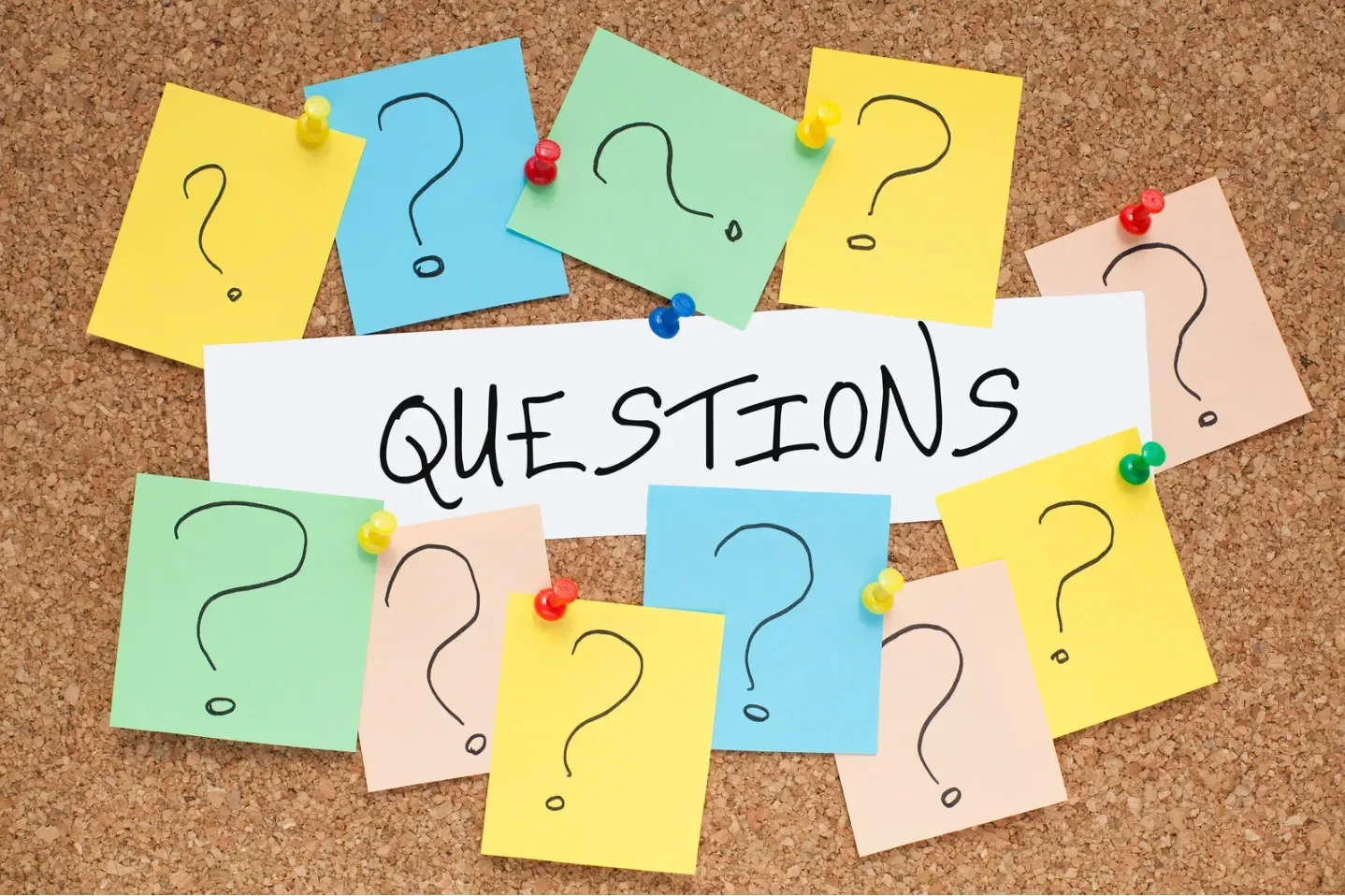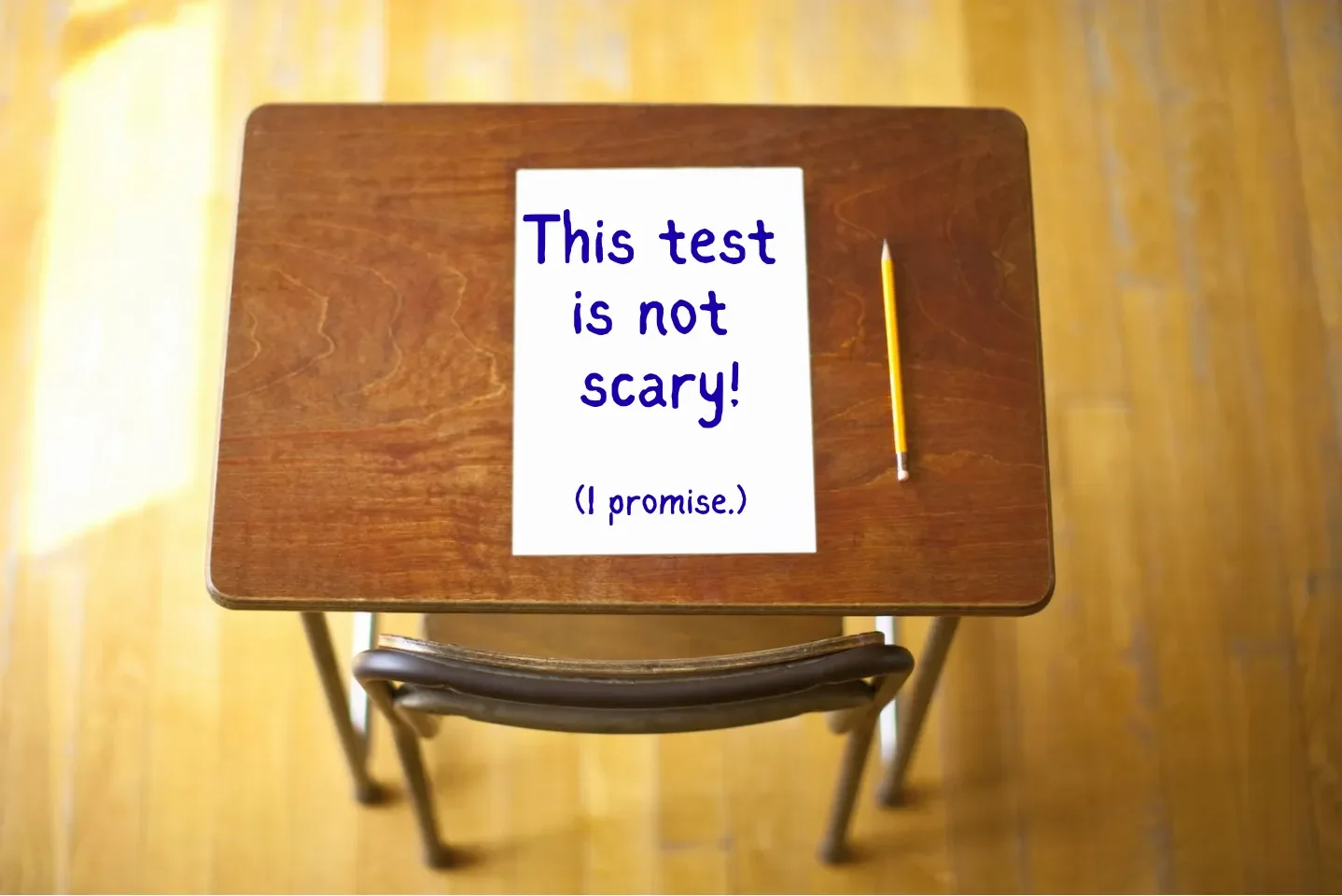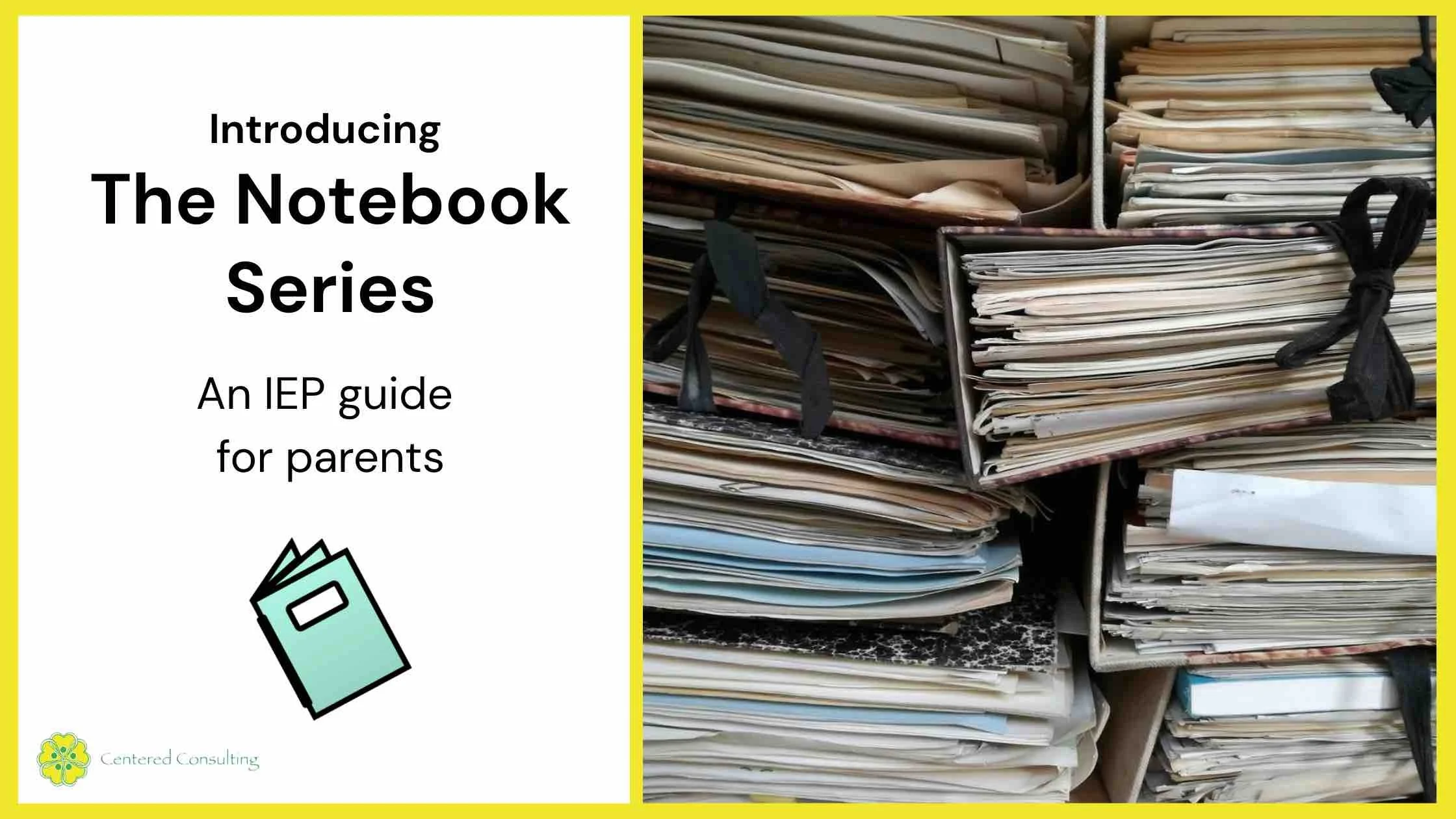The Staying Centered Blog

Questions and Quandaries, part 1
You’ve got questions, and I love compiling a ton of information across the internet into answers! We’re the perfect match. In this week’s Q&Q post, we dive into 504s, therapy, and Medicaid…oh my!

Transition IEPs - A Case Study: The Notebook series, part 6
For this week’s post on transition IEPs, we’re going to approach things a little differently: through the (fictional) lived experience of Jeong and his family as they navigate his big transition to preschool.

Navigating your child’s triennial reevaluation: The Notebook series, part 5
A triEnnial is an reevaluation EVERY 3 years, A triAnnual is an reevaluation 3 TIMES a year. In my first year teaching, I mistakenly offered several parents the latter—whoops! Read on for more helpful clarifications!

Everything you should know about assessments: The Notebook series, part 4
The assessment process can be a positive experience, but that doesn’t mean it’s an easy one. The process may feel overwhelming—for you and your child. Let’s talk through some common questions that may help!

How to prepare for your child’s annual IEP meeting: The Notebook series, part 3
Like Halloween, annual IEPs happen once a year—and they come around faster than you think. They can feel spooky and seem like all tricks and no treats. But let’s see if we can change that!

Everything you need to know about your child’s IEP team: The Notebook series, part 2
In this installment of the Notebook series, we get into the details of who’s on your child’s IEP team—and what they do. Think of this post as a Mister Rogers Neighborhood style of meeting your team.

What’s the difference between an accommodation and a modification?
Accommodations and modifications are an important part of an IEP. They include the specific supports the team recommends to ensure the student can access the services, standards, and curriculum included in their educational program.

What are your Parents’ Rights?
Parents’ Rights are summarized in a document that parents should receive prior to every IEP meeting. This document is also sometimes referred to as Procedural Safeguards.

What is an initial IEP?
An initial IEP is held to determine whether a student is eligible to receive special education services.

What happens if I disagree with assessment results?
If your child was assessed, and for any reason you don’t agree with the assessment results, you have the right to contest the results.

What’s my role in my child’s assessment process?
Even if most of the assessment process happens while your child is at school, you are still an active participant in the assessment process.

How often will my child be assessed?
Once your child has been found eligible for special education services and an Individualized Education Program (IEP) is being implemented, you can expect your child to be assessed every three years. This is called a triennial evaluation.

What happens if I request that my child be assessed?
If you believe your child is in need of assessment—either to make changes to their existing Individualized Education Program (IEP) or to establish special education services through an initial IEP—you should make your request for assessment in writing to a member of your child’s IEP team or to an administrator at your child’s school.

How can you get additional services for your child?
If your child is already receiving special education services, it is within your rights to ask for changes to those services. You can ask for more or less of a service they are currently receiving. You can also ask for a service they aren’t currently receiving to be added to their program.

Who is on your IEP team?
IEP teams will include team members based on each student’s services and specific program, but typically a team is composed of: Case manager, Special education teacher, School psychologist, Service providers, Administrator, General education teacher.

Individualizing care in ABA with Dr. Jessica Flaherty: The Expert Interview series
For this first interview in the Expert Interview series, I asked my good friend Dr. Flaherty to talk with me about all things ABA, including individualizing care, the environment, and supporting families as advocates!

What you need to know before your child's initial IEP meeting: The Notebook series, part 1
IEPs have earned a reputation as being 'difficult' to say the least, but they don’t have to be! Whether it’s your 1st IEP or your 15th, keep reading to learn how to make the experience a positive one.

Introducing The Notebook Series: An IEP Guide for Parents
No, this series isn’t about every Millennial’s favorite cryfest—sorry. This series is about providing clear information that is essential to supporting parents navigating the IEP process—yay!

What is an IEP?
Individualized education programs (or IEPs) are a written contract between you and your child’s school. They are essential documents that define the obligations a school has in providing special education services for a child.

Everything I needed to know about friendship I learned from a kindergartener
Watching a remarkable kindergartener—and runner, Ariel, lose a race on purpose so her friend could win helped me rethink how we measure student success as special educators.
